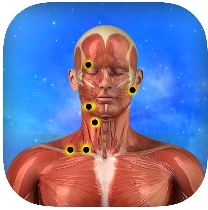Massage Therapy Certification is a practice of holistic and physical health, and also, as an industry has come to realize the importance of being certified, licensed and accredited.
Perhaps the most important of these is the certification process.
Because it only seems logical that the paying client or patient has a right to know that their massage therapist has the qualifications needed to practice safely and effectively.
So this certification also ensures the general safety, health and also, well-being of the client and promotes a certain level of professional standard.
Massage therapy certification nationally is a relatively new regulation process for the professional massage therapist.
Yet one that the industry as a whole has already benefited from.
Certification provides benefits to individual therapists, employers of therapists and even the client.
The Need for Certification
So the need for a national massage therapy certification was recognized as the industry grew to encompass several types of professional massage techniques encompassing both Eastern and also, Western traditions.
Because the national certification body, the National Certification Board for Therapeutic Massage & Bodywork (NCBTMB) is an independent, private and not for profit organization, formed in 1992.
So that promotes a higher standard within the profession of massage therapy through a recognized certification process.
The NCBTMB has become a recognized body with a vision to promote a standardized certification.
Additionally, it acts to promote and foster ethical standards and maintain continued development of the certification process to create an ever-evolving professional body within the industry.
Today there are over 80,000 certified practitioners.
The value of this certification was what truly propelled the NCBTMB during its rapid growth.
Because it focuses on protecting the employee, employer and consumer with a solid basis of knowledge through the certification process by implementing a demanding curriculum that truly prepares one for this profession.
NCBTMB Goals – Massage Therapy Certification
- The scope of Certification – maintaining sync with the practice of massage therapy
- Knowledge of the Environment – a true understanding of the industry allows it to make informed decisions.
- Value of the Credential – massage therapists, employers and consumers will recognize the value of such distinction in the certificate.
- NCBTMB positioning – is positioned as an authority within the certification community.
- Organizational Effectiveness – will well-manage, governed and fiscally sound.
How to Get Your Massage Therapy Certificate
Any massage therapy practitioner can become accredited and licensed in certain states given they meet the state’s requirements.
However, one must first pass the MBLEx certification exam which is the standard exam for all massage therapists nationally.
So it’s worth repeating here that being licensed not the same as being certified.
You can get your massage license after completing schooling either through massage therapy schools, colleges and universities within the state you plan to practice in.
The certification, however, is the primary where your education is just one of the attributes you need to meet in order to achieve the certification.
The remaining attributes are listed below:
Steps to Certification
- Pass the Board Certification Exam (CE)
- 750 hours of education (including CE’s from approved NCBTMB providers.)
- 250 hours of documented hands-on massage experience.
- Pass a national background check.
- Uphold NCBTMB’s Code of Ethics and Standards of Practice.
- Maintain current CPR certification.
- Commit to oppose human trafficking.
So the National Certification Exam for Massage Therapy and Bodywork is conducted by approved providers by the NCBTMB.
Testing costs differ between providers but average around $185 per exam; failed attempts require another testing, usually at full rates.
To keep the designation fresh the practitioner must reapply every 2 years.
Upon completion of these steps, therapists can designate themselves as ‘Nationally Certified in Therapeutic Massage and Bodywork’ and use of the NCBTMB initials.
There are many more benefits to this.
Benefits of Certification – Massage Therapy Certification
The benefits of massage therapy certification are three-fold.
Benefits to Practitioners
The benefits of national certification allow the practitioner to achieve the highest level of professional recognition among the massage therapy and bodywork industry.
These benefits include the following:
- Informs employers and consumers of your credentials.
- Provides an awareness of the commitment to safe and ethical practice.
- Gives a competitive edge.
- Increases visibility and credibility.
- Reimbursement by some insurance companies is given.
- Increases employment opportunities within communities and across state lines.
- Allows for listing in the NCBTMB national register and practitioner locator service.
- With national certification, it places the practitioner on par with other professionally certified healthcare providers.
Through this wealth of benefits Nationally Certified Massage Therapy practitioners enjoy professional acceptance and generally increased business due to either being able to charge higher rates for their service or a more satisfied and consistent client base.
Benefits to Employers
Employing a nationally certified practitioner gives a great competitive advantage over other similar service providers.
Through certification, the employer gains comfort in the knowledge that the practitioner has completed a rigorous curriculum and training program designed to encourage continually.
Learning and a professional standard to uphold the TCBTMB’s Code of Ethics and Practice Standards.
This higher standard also helps clients recognize an increased level of service ensuring repeat business.
Lastly, it allows a specific grievance process for clients that find the practitioner is not keeping to professional standards.
Many aspiring therapists are recognizing this and are voluntarily pursuing their massage therapy certificate.
They understand its value proposition and the benefits it can deliver in their career progression.
Benefits to Consumers – Massage Therapy Certification
Massage therapy certification gives consumers the confidence in choosing an ethical and well-trained practitioner of massage therapy, one that assures their interests are being protected.
It also proves that the consumer will serve according to national standards.
These standards of practice include:
- Professionalism
- Legal and ethical standards
- Confidentiality
- Prevention of sexual abuse
- Physical and emotional boundaries and adherence to specific roles
- Best Practice standards
Consumers that educated and understand the difference between a nationally certified massage therapist and a non-certified therapist appreciate the difference and tend to become more loyal clients.
Summary
Certification is now being required in more and more states as a licensing requirement as the industry has matured over the last 10-15 years.
A certification in massage therapy raises the bar for the industry as a whole and puts it on the same platform as other professional healthcare providers by protecting both its practitioners and consumers.
By formalizing the certification process nationally the NCBTMB supports the educational standards of the industry and provides a clear layout of educational, ethical and practical standards.
This process has provided many benefits to practitioners, employers and consumers by increasing the overall professionalism of the industry and safeguarding the hallmarks of healthcare, including the industry best practices.
If you are ready to take the next step toward a brighter future, use our database below to search for massage schools near you.
We have an arrangement with all of them that allow you to request information for FREE. Please do so and take that first step toward a better future.
[qs_widget wtpl=”onestep” sub=”MASSAGE-THERAPY” framewidth=”600″ frameheight=”200″]
—
Want to Multitask?
Watch this article in video format or simply play it in the background and listen to it while you work away
[8RLwgzeB5vk]
8ZC9FYWRUMSM








I need to know what courses to take to get my 750 hours of ceu’s. who do I call or e-mail to get this information.
Michelle Varsalona
Michelle, as long as the courses are CEU eligible you can take them anywhere anytime. you don’t need to call anyone. if you are looking for places that offer the courses, please use our search box to find massage schools near you who offer these courses. you can request the information sent to you in the mail.
Hi. I graduated from a massage school and received a certification in new Jersey. Do I need a license to practice massage therapy??
yes